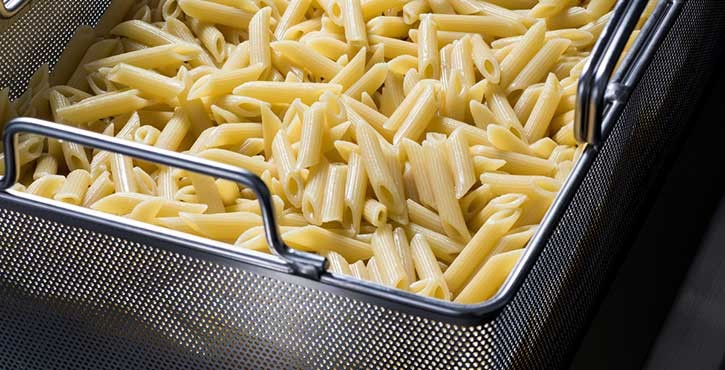Cook RATIONAL – 2024-02-06
In an era where food freshness and quality are paramount to customer satisfaction, foodservice operations are increasingly gravitating towards a strategy known as “smaller batches more often“ (SBMO). This approach promotes the preparation and service of fresher, hotter meals, minimizing waste, and ensuring consistent, high-quality results for customers. The benefits of this method are evident in various foodservice setups, from grocery store hot bars to buffet-style restaurants.

What are the reasons behind this strategic shift? The primary advantage that stands out is the significant enhancement in the quality of food. Cooking in smaller batches more frequently ensures food remains closer to its peak state, resulting in hotter and fresher offerings. As highlighted by William "Billy" Buck, Vice President of Culinary at RATIONAL USA, long holding times are where "freshness goes to die." This succinct statement captures the essence of why many operations are moving away from large batch cooking and holding: the extended hold times can compromise the taste, texture, and the overall appeal of the dish.
Less food waste, greater satisfaction.

Beyond the direct implications for food quality, the SBMO approach also aids in reducing food waste. As smaller amounts are cooked, there's a lower chance of leftovers, leading to reduced costs for the establishment, and also contributing positively to sustainability efforts. This is particularly advantageous for buffet-style eateries, grocery store hot bars, and K-12 and college or university settings. In these settings, food often remains on display for extended periods of time, which increases the chances of spoilage or declining quality. With the SBMO method, these businesses can ensure a consistent rotation of fresh, appealing food, enticing customers and ensuring optimal taste with every serving.
Customer expectations have always played a pivotal role in the strategies employed by foodservice businesses. According to Buck, diner satisfaction can soar when provided with food that's not just hotter and fresher, but also retains higher nutrient content. This trifecta of benefits – taste, temperature, and nutrition – works wonders in cultivating loyal customers who are assured of a premium dining experience each time they visit.
Reduction in cooking times, increased production.

Modern kitchen equipment, such as the RATIONAL iCombi Pro, makes the implementation of the SBMO strategy possible. This advanced appliance is designed to optimize kitchen space while enhancing efficiency. Its unique features, such as iDensityControl 's air circulation and dehumidification processes, promise up to 50% increased productivity and about a 10% reduction in cooking times. These advancements streamline the cooking process, ensuring consistent results and minimizing the margin for error.
And with tools like iProductionManager, chefs and kitchen staff can manage dishes seamlessly, determining which can be cooked together for maximum speed or energy efficiency. The result is a harmonious cooking environment where the focus stays on delivering exceptional food quality.
Cooking smaller batches more often is a transformative strategy for foodservice operations. It emphasizes the importance of food freshness, reduces waste, and amplifies diner satisfaction. With the integration of advanced kitchen technologies like the iCombi Pro, establishments can effortlessly embrace this method, promising their customers an unparalleled dining experience characterized by impeccable taste, optimal temperature, and superior nutritional value.